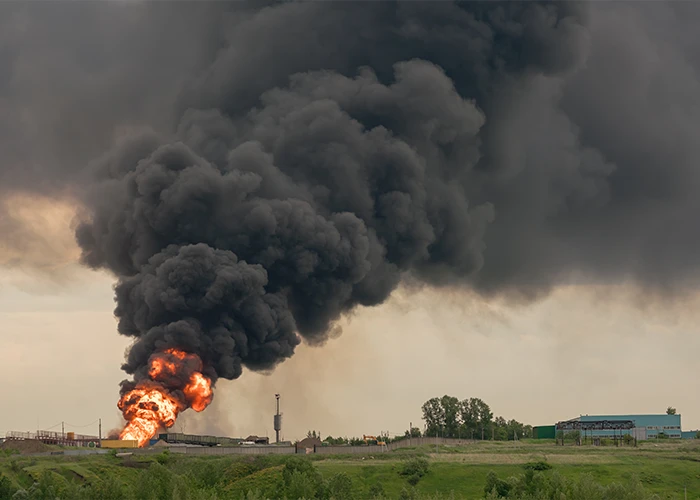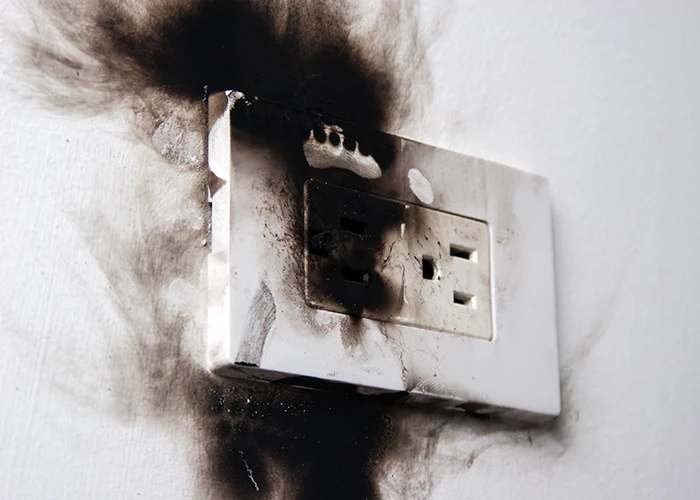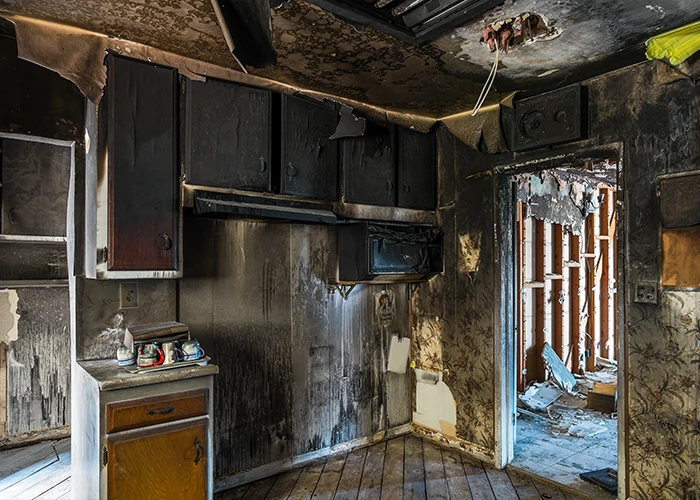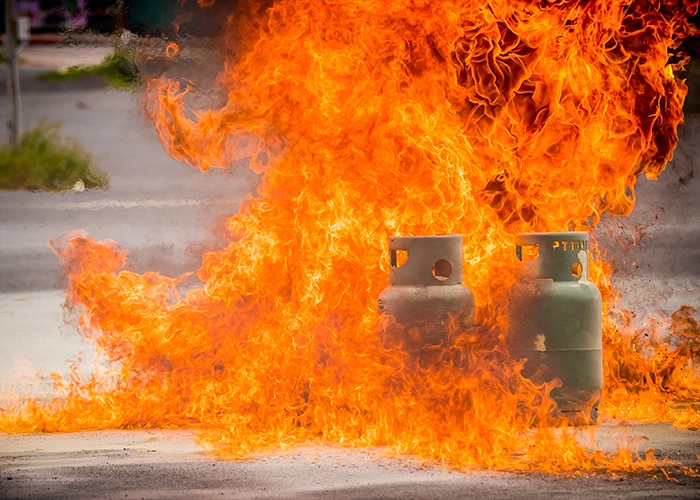Fire/Smoke
The effects of fire are some of the most self-evident and devastating types of damage. Even if it is not apparent, damage from smoke can be found far from where the fire was located, in HVAC vents, plumbing chaises, electrical devices and in porous materials.
Many people do not know that there are several different kinds and effects of smoke and therefore there must be a specialized approach to dealing with the damages and determining what can and cannot be salvaged.
Smoke can not only ruin construction materials and your possessions but also the indoor air quality and health of the occupants of your home. Smoke must be remediated properly to avoid any permanent effects. Smoke can leave a coating or greasy residue that may begin to erode materials, create a persistent smell, cause rashes and respiratory problems if not treated and cleaned properly. Smoke can find its way into areas you may not think of, such as, behind your cabinets and inside the wall cavities. Not all types of smoke are the same.
The type of fire will determine the type and behavior of the smoke. The most common types of smoke are:

Dry Smoke

Protein Smoke
Protein smoke comes from burning organic matter, usually from kitchen fires and haphazard cooking endeavors. Protein smoke is nearly invisible; however it is typically the most pungent and most difficult odor to remove.

Fuel Smoke
Fuel Smoke comes from burning petroleum products. Also, one of the most foul-smelling types of smoke. Due to the fact that the soot from this smoke is thick and sticky, any surface it touches is likely not repairable.

Get in touch
833-FIX-LOSS
813-522-8006
727-591-7837
